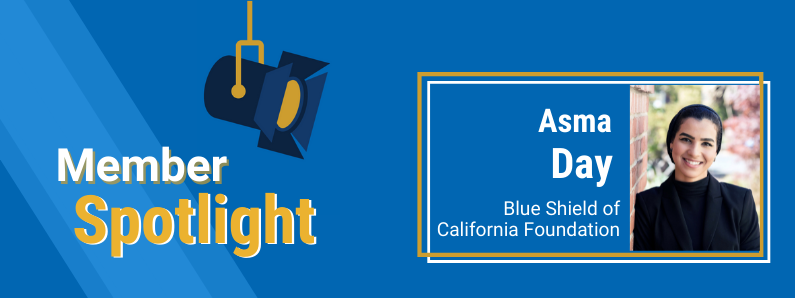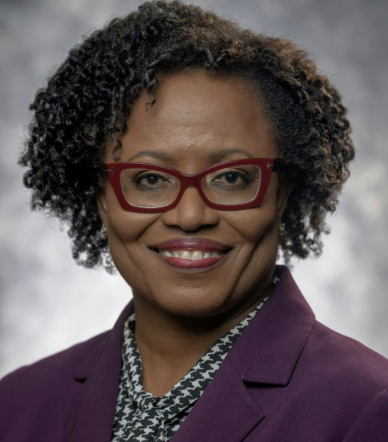 Meet our members! AFN’s greatest asset is our members—a diverse network of national, regional, and community-based foundations, financial institutions, and grantmakers—investing in advancing equitable wealth building and economic mobility. Check back each month and meet your peers!
Meet our members! AFN’s greatest asset is our members—a diverse network of national, regional, and community-based foundations, financial institutions, and grantmakers—investing in advancing equitable wealth building and economic mobility. Check back each month and meet your peers!
1: What is the mission of your organization and how is advancing equitable wealth building and economic mobility incorporated into the work?
The Foundation is advancing equitable wealth building through its Economic Security & Mobility portfolio. Within this portfolio, the Foundation funds 3 strategies:
-
Bolstering the care economy that increase benefits, job quality, and wages for domestic and care workers
-
Increasing income and benefits supports that put more time and money into the hands of low-income Californians of color
-
Reducing housing insecurity among survivors of domestic violence
s
2: What are some of the permanent pivots you have made as a result of the COVID-19 pandemic and the current moment emphasizing the critical need for strategies that provide a range of support to women and Black, Latinx, Indigenous and Asian people and communities?
Since the pandemic, the Foundation has shifted its strategic framework under our new CEO Debbie Chang’s leadership, and carved out a portfolio of grantmaking specifically for the improvement of economic security outcomes for low-income Californians of color, especially women. The pandemic has brought to bear the disproportionate burden that times of crisis and financial strain place on low-income families and women of color, and it was important for the Foundation to create the internal capacity and leverage its networks and grantee relationships to inform this focused strategy, so that those most impacted are not only able to weather the storm of this pandemic, but that long-term state policies and systemic changes are put in place to continue protecting those often left out of support systems, allowing them to live dignified, healthy lives in our Golden State.
3: What are some of the most significant gaps that you have identified that could help address economic equity?
Currently in California, there are 3 imperfect anti-poverty systems that could drastically improve economic security in the state, if their systemic, administrative, and political-will gaps are addressed. These are: safety-net benefits (state welfare programs like CalFresh, CalWORKs, MediCal); tax credits (CalEITC, YCTC); and unrestricted cash programs (guaranteed income pilots and demonstrations). While each has its unique gaps and limitations, some common gaps include: a lack of effective data collection, reporting, and dissemination to support targeting of benefit reach; misconceptions and lack of political will around supporting unrestricted and recurring cash to families living in poverty; lack of streamlining of enrollment/outreach across these systems; and immense bureaucratic processes including means testing and non-inclusive reporting requirements that keep families of color (particularly those in mixed-status or non-English speaking households) locked in poverty.
4: Thinking about your previous answer, what do you see as the biggest barriers or challenges for philanthropy to address these gaps?
A challenge for philanthropy that can be seen as a ‘low-hanging fruit’ to solve for is the bureaucratic processes in grantmaking. The less hoops we make our grantees jump through to obtain funding, the more (and faster) that they can do to support their communities in the outreach, education, and advocacy work that are critical to closing the gaps identified above. Additively, this approach increases trust between funders and community organizations, a key aspect to dismantling harmful power-dynamics that perpetuate the economic insecurity we see today. Another barrier for philanthropy is that we’re often siloed in our work; if we are to fundamentally shift centuries-old systems to improve wealth equity in our communities, we will need to increase our collective thinking and strategic giving by creating learning spaces (such as ones created by AFN), increase pooled funds and partnered-giving, and use our platforms to help shift narratives of deservedness to our own peers, leadership, and boards, and broadly to policymakers and other funders with influence.
5: Is there a question you would like to raise to your funder colleagues?
What have you identified as promising philanthropic practices that increased trust with grantees, and in turn influenced the quality, quantity, and speed of work that your grantees were able and willing to do, related to increasing economic security?
6: What is your favorite online shop owned by women or people of color?
https://soukandsepia.com/
About Asma Day, Program Manager, Blue Shield of California Foundation
Blue Shield of California Foundation supports lasting and equitable solutions to make California the healthiest state and end domestic violence. The Foundation supports statewide policy change and innovation scaling initiatives that primarily impact low-income Californians of color.
Asma Day manages the Foundation’s Economic Security & Mobility grant portfolio and supports the portfolio’s Sr. Program Officer in strategic planning and budget management.

